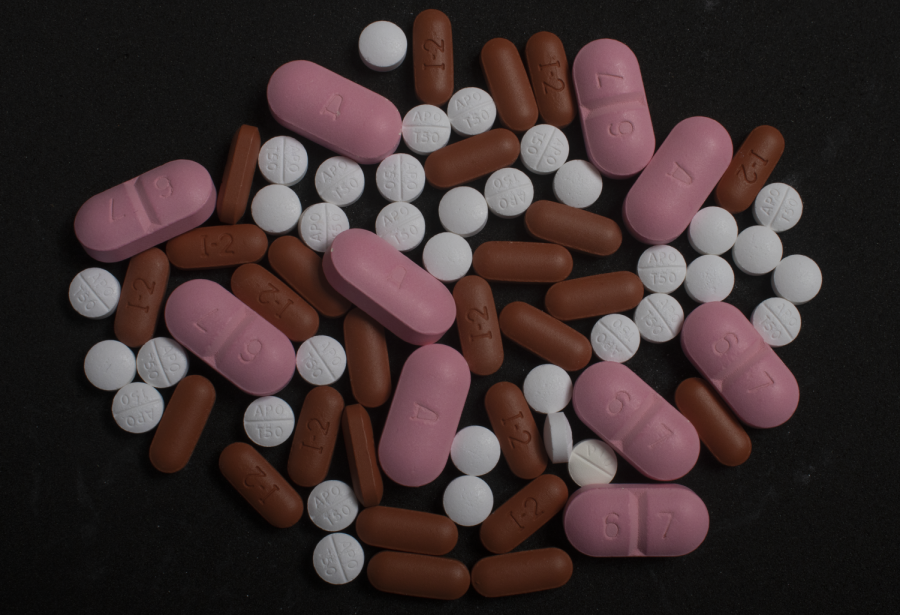Sociology professor discusses drug abuse stigmas
November 17, 2022
Drugs in certain communities have an impact beyond just their community. When citizens are arrested, they can be treated unequally when they are tried for drug charges, according to Eastern sociology professor Mari Kita.
Kita, an assistant professor of anthropology, sociology and criminology at Eastern, explained the stigma that society places on people with drug addictions.
“Society definitely places stigma on addicts,” Kita said. “It’s racialized, too. I believe it has a lot to do with the government’s commitment to criminalize and punish urban racial minorities through extremely tough crime policies such as the mandatory minimums and the three-strikes laws, which have been a major part of the War on Drugs.”
The War on Drugs is a campaign led by the United States federal government created by Richard Nixon to reduce illegal drug trade in the United States.
Examples of this can be seen where there are convicts still in prison for miscellaneous offenses.
Kita also explains how the court system treats people differently based on what types of offenses people are charged with.
“There is this thing called sentencing disparities,” Kita said. “For those who have been arrested for the possession of crack cocaine, the sentence would be much longer than those who have been arrested for the possession of powder cocaine. The two substances are exactly the same; they have the exact same chemical compounds. It’s just that the former is cheaper and easier to make than the latter. Therefore, crack is more commonly used by those who are economically marginalized, and powder cocaine is more prevalent among those who can afford it—the white middle-class or even upper-class, just like the movie The Wolf of Wall Street. The people who got arrested for crack (young racial minorities in urban areas) are, of course, more likely to go to prison and are less likely to receive treatment. So the difference between those who get prison, and those who get treatment is often times based on their race and class.”
Kita also says how the majority of people who use drugs are not addicts, and how that is a misconception, and they can function properly.
The types of drugs that people use dictate the way that their lives go. Marijuana is less effective of a drug than harder drugs such as, heroin and crystal meth which can be “physically addicting.”
“[Which means] you can get physically sick when you withdraw from these drugs,” Kita said. “When drug use gets out of control, of course, it can affect people significantly, including their family members.”
Having personal conflicts with drugs can negatively impact the relationships that may not be able to be reestablished. Sometimes people steal valuables to be able to purchase more drugs.
There are processes or routines that people go through to overcome it and Kits says that the twelve-step program. She believes it is the most ‘prominent’ recovery step that someone can take.
“But again, addiction is something that you deal with throughout your life, so it is very possible that you relapse and start using again,” Kita says. “That’s fine; that happens. It just means that society needs to be more understanding of the steps that recovering addicts take and not punish those for trying.”
Pertaining to life after going through rehabilitation, it can still be difficult for people that have overcome their addiction to carry on with their lives.
Kita believes that rehabilitation can “certainly” help people with their addictions.
“Once you have built drug addiction, you may have to deal with it for the rest of your life,” Kita said. “Still, I’ve heard that self-help programs like the NA, Narcotics Anonymous, are tremendous help for recovering addicts as they can obtain emotional and moral support. There are of course other effective treatments as well, such as cognitive behavioral therapy and taking medication to alleviate withdrawal symptoms. Obtaining jobs is a different matter, and vocational training can be used in conjunction with substance abuse treatment.”
Kita said the statistics of drug usage on campuses has been steadily decreasing and alcohol is the real issue due to the fact that it is more accessible.
“I know that we take students’ mental health seriously at EIU, so I think it’s important for us faculty to not overburden the students and let them know that we are always here for them,” Kita said.
Cam’ron Hardy can be reached at 581-2812 or at cahardy@eiu.edu.


































































